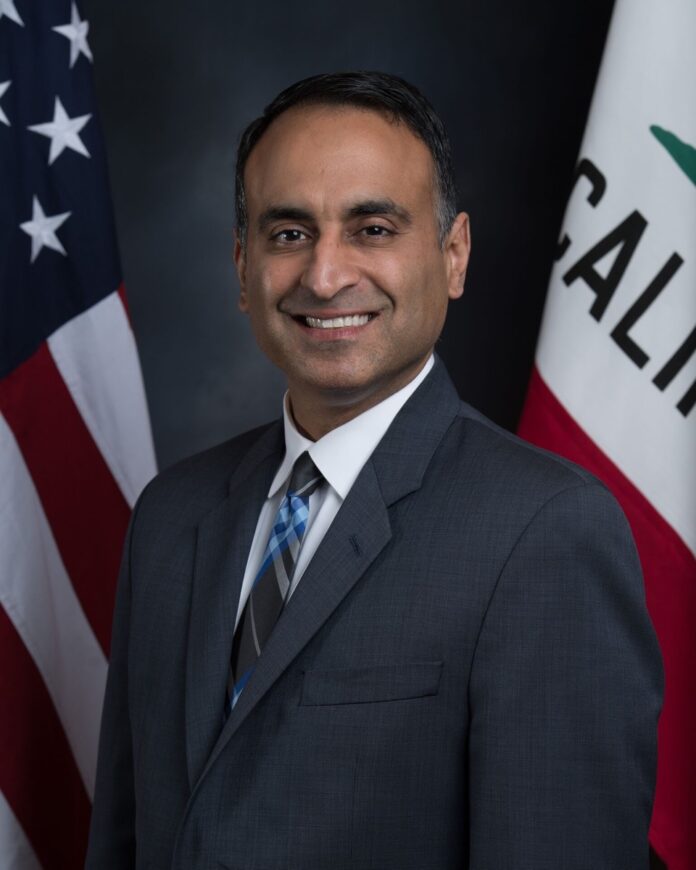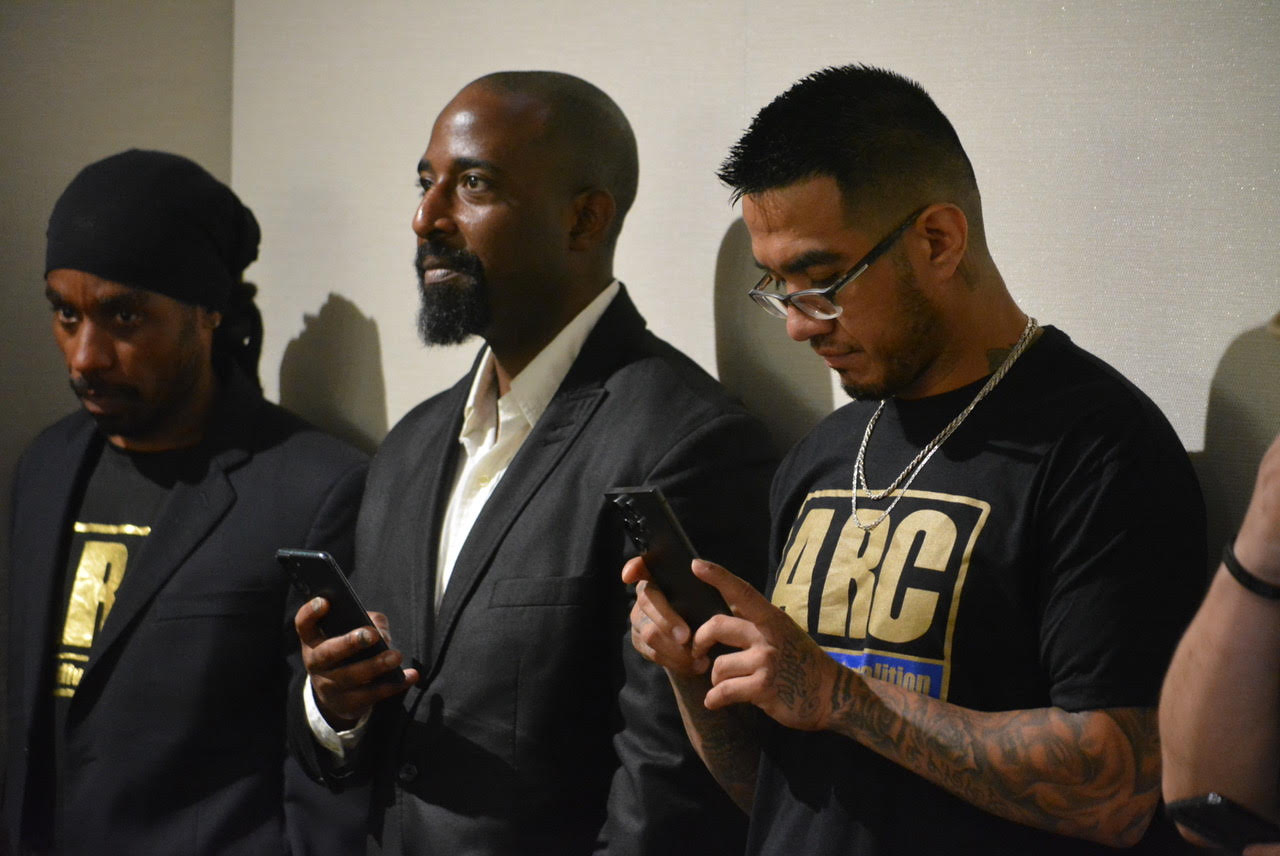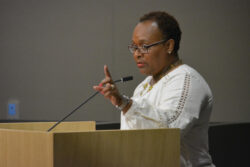
By Antonio Ray Harvey, California Black Media
On June 11, a heated debate ensued among lawmakers over reparations for Black Californians during an Assembly Judiciary Committee hearing on Senate Bill (SB) 1331, also known as The Fund for Reparations and Restorative Justice.
Assemblymember Kate Sanchez (R-Rancho Santa Margarita), a member of the Judiciary Committee, voted against SB 1331, commenting that the legislation is “fundamentally unfair” and “the pain of our past should not be paid by people of today.” She stated that California’s Asians and Latinos make up 55% of the state population and are not responsible for slavery, discrimination, or Jim Crow laws.
Senate Judiciary Committee chair Ash Kalra (D-San José) disagreed with Sanchez’s perspective and pushed back with a persuasive counterargument explaining why America owes Black Americans.
The Indian American lawmaker reminded Sanchez and other members of the committee that “the country became a superpower based on free labor” and “Black families over a generation “did not ask if it was okay to take their wealth, enslave them, or put their children in poverty,” Kalra said.
“We recognize it,” Kalra said, nearly breaking into tears. “I know it’s not going to be easy. It’s not supposed to be easy to actually admit what you’ve caused pain when you try to repair and heal that pain. And yes, we still benefit to this day from what happened to our brothers and sisters in the Black community so many generations ago.”

During a panel discussion held on June 15 in San Diego, organized by the Black Freedom Fund in partnership with the CLBC, Assemblymember Mike Gipson (D-Carson) criticized some Republican colleagues in the Legislature who uniformly and consistently vote no on reparations-focused legislation.
“Some of our Republican colleagues have taken it upon themselves to make this a very political issue, voting no on all our bills,” said Gipson. Any bills that deal with reparations, they are voting no. “They are also casting lies on how much these bills are going to cost and talking about the immigrant status and how they are not a part of what happened in California. So, it’s our responsibility to educate our colleagues on what’s going on.”
SB 1331 was one of four reparations bills that the Senate and Assembly reviewed in various committees and voted to advance.
Assembly Constitutional Amendment (ACA) 8 made it out of the Senate Public Safety Committee on June 11 with a 4-1 vote. The legislation is on its way to the Committee on Elections and Constitutional Amendments.
Authored by Assemblymember Lori Wilson (D-Suisun City), ACA 8 seeks to abolish the language “involuntary servitude” from the state’s constitution, effectively prohibiting slavery of any form in the prison system.
“We have an opportunity to step in the direction that ends that legacy (of slavery in California),” said Wilson, the chairperson of the California Legislative Black Caucus (CLBC).
“This bill throughout its history has enjoyed no opposition on record or testifying against it,” said Wilson. “I believe it is really consistent with California’s value and it’s time we showed it in writing and not just within talks.”

The public safety community members who voted in favor of ACA 8 were Sens. Nancy Skinner (D-Berkeley), Scott Weiner (D-San Francisco), Aisha Wahab (D-Hayward), and CLBC member Steven Bradford (D-Inglewood). Sen. Kelly Seyarto (R-Murrieta) voted no. If the bill passes out of the Senate, it will be sent to Gov. Newsom for his signature and placed on the general election ballot in November.
Wilson’s legislation is one of 14 reparations bills introduced by the CLBC earlier this year. The package addresses the recommendations the California Reparations Task Force made last year in its 1,100-page final report.
ACA 8 is the legislative successor of ACA 3 – the California Abolition Act – aimed at removing slavery from California law.
It was first authored by then-Sen. Sydney Kamlager-Dove (D-Los Angeles) but the bill failed in 21-6 vote on the Senate floor in June 2023.
Kamlager-Dove was elected to the U.S. House of Representatives after Karen Bass vacated the seat to run for mayor of Los Angeles. She still monitors the bill that Wilson picked up when she left the State Senate.
Kamlager-Dove is currently working to remove similar language regarding voluntary servitude from the U.S. Constitution.
“The exceptions for slavery and involuntary servitude in both the California Constitution and the 13th Amendment are moral disgraces that need to be addressed at both federal and state levels,” Kamlager-Dove said in a written statement to California Black Media. “In Congress, I proudly reintroduced the Abolition Amendment to amend the U.S. Constitution and abolish slavery once and for all. We must sustain this momentum at the state level. I urge swift passage of ACA 8 to end prison labor in California.”
In addition to Wilson’s ACA 8 bill, a number of reparations bills authored by members of the

CLBC are advancing in the Legislature.
In addition to SB 1331, the Assembly Judiciary Committee voted to pass three of Bradford’s reparations bills, as of June 12. The bills are Senate Bill (SB) 1403, that would establish the California American Freedmen Affairs Agency (CAFAA) and SB 1050, CAFAA’s required action to compensate families that lost property to eminent domain.
SB 1403 and SB 1331 are not part of the CLBC reparations package.
Assemblymember Joe Patterson (R-Rocklin) voted no on SB 1403 and SB 1331, but voted yes gave SB 1050 his full based on his knowledge of property rights and the historical unfair use of eminent domain.
“I think eminent domain should be extremely limited,” said Patterson, the vice chair of the Assembly Housing Committee. “I am 100% for something where you say you have to be compensated for fair-market value if the government is going to take your property. Because of that, I am going to support this measure.”


